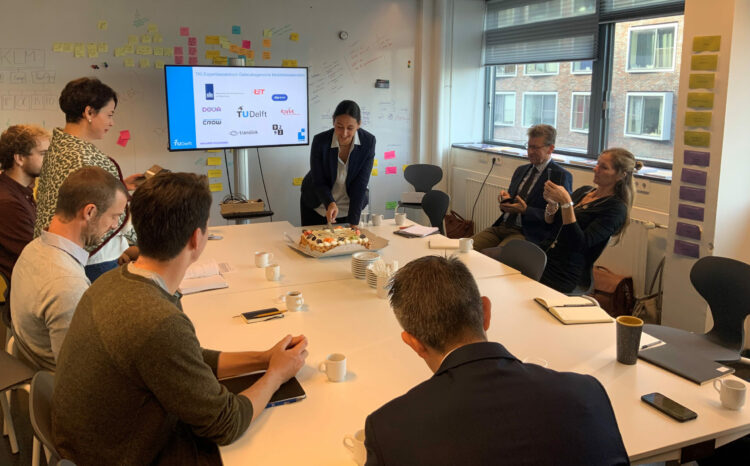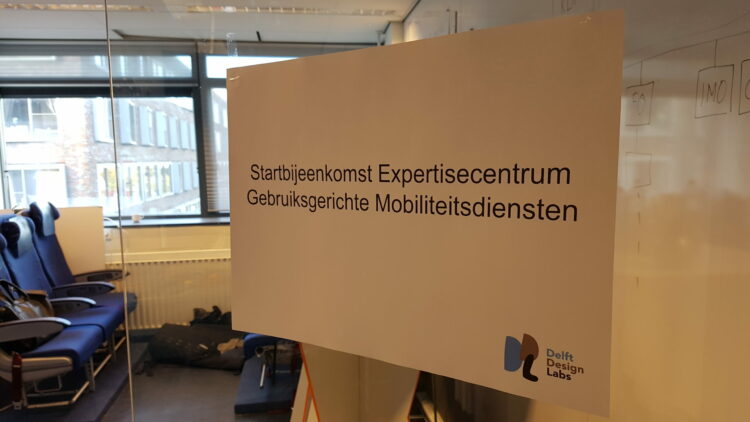Expertise Centre for Seamless Mobility Services launched
On Thursday 3 October, the TKI Expertise Centre for User Focused Mobility Services officially kicked off. In this research and design lab, students and researchers of Industrial Design Engineering at TU Delft work together with mobility companies, government and technology developers. As successor to the Expertise Centre for E-ticketing in Public Transport, the researchers and students will apply the same user focused, integrated approach on more than just public transport. They will look at personal mobility services. Because if you’re on the move with private, shared or public transport, in the end you want to get from A to B fast, simple and for a reasonable price.
In the Expertise Centre for User-Centred Mobility Services, the Dutch Ministry of Infrastructure and Water Management, TransLink Systems (TLS), DOVA, Knowledge platform CROW, RET, GVB, 9292 Travel Information Group and Traveler’s Association ROVER are working together with students and researchers from the faculty of Industrial Design Engineering.
Suzanne Hiemstra-van Mastrigt is directing the new Expertise Centre: “We’re designing for the future of personal mobility services, such as Mobility as a Service (MaaS). MaaS offers flexible, demand-driven multimodal mobility services which can be used to plan, book, travel and pay for your journey via a digital platform, often a mobile app. You can combine car-sharing, trains and taxis in one journey, for instance. Possible positive effects of MaaS include a more spread out demand of public transportation and car-traffic throughout the day. And perhaps a better accessibility of areas at the periphery of urban areas.”


The development of MaaS is accelerated by technological developments, the growing availability of data and an ongoing shift from ownership to use of products. Hiemstra: “One of the risks of MaaS is the strong focus on the technological possibilities and possible societal benefits such as improved livability for cities and less congestion. However, the individual needs of each traveler are not yet taken into account in the current discussion. It is our goal to lead development of future personal mobility services, such as MaaS, with a focus on the individual traveler’s perspective. This way, we search for solutions that would make such a service as attractive, inclusive and user friendly as possible from the moment of introduction.”
The Expertise Centre will identify critical use factors, and explore what would be the ideal user experience for future mobility services, in order to generate solutions that match both the needs of travelers and the different mobility stakeholders. The festive kickoff meeting gives the students a flying start for their projects. Suzanne: “I’m looking forward to the insights from the different research studies, in order to get a better understanding of the wants, needs and behavior of travelers. Together with our partners, we will translate these insights into solutions that can contribute to solving some of the current mobility problems in The Netherlands.”
The Expertise Centre for User-Centered Mobility Services received project funding for Public-Private Partnerships for Research and Development (PPP allowance) from the Dutch Ministry of Economic Affairs and Climate Policy via CLICKNL.
